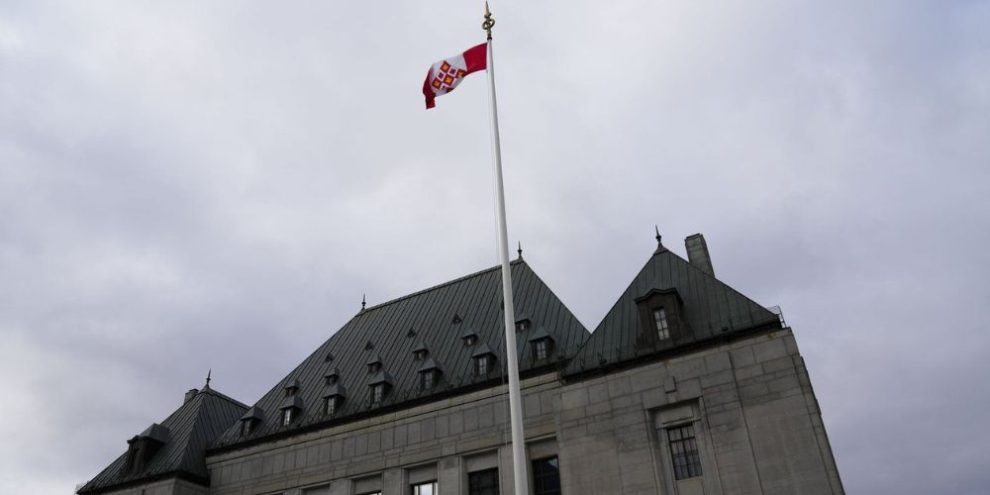
The Supreme Court of Canada says a federal prisoner can challenge a refusal to reclassify them to a lower-security facility through the time-honoured writ of habeas corpus — a hearing before a judge to determine if a detention is lawful.
In a 6-3 ruling Friday, the top court said continuing a more restrictive form of confinement, instead of placing an inmate in a lower security facility, results in a deprivation of their remaining freedom.
The court said broad and effective access to habeas corpus is critical for those who suffer unlawful and continued deprivation of their liberty and seek to challenge the legality of their confinement.
The decision came in the jointly heard cases of two men who argued they were unfairly denied access to habeas corpus when contesting classification decisions while being held at medium-security prisons.
Barrie's News Delivered To Your Inbox
By submitting this form, you are consenting to receive marketing emails from: Central Ontario Broadcasting, 431 Huronia Rd, Barrie, Ontario, CA, https://www.cobroadcasting.com. You can revoke your consent to receive emails at any time by using the SafeUnsubscribe® link, found at the bottom of every email. Emails are serviced by Constant Contact
Frank Dorsey, a Black Canadian, had been designated a dangerous offender and received an indeterminate sentence, while Ghassan Salah, a Jordanian citizen, was serving concurrent life sentences.
Under federal law, a minimum-security classification is given to inmates who are unlikely to escape and pose little risk to public safety, while requiring a low degree of supervision.
A medium-security classification is reserved for inmates who present a low-to-moderate probability of escape and a moderate risk to public safety, while needing a moderate degree of supervision.
These definitions inform both initial placement and any future reclassification, the Supreme Court noted.
In most cases, a final decision on classification is made by the prison warden. There are additional steps when the prisoner is a dangerous offender.
Inmates may grieve reclassification decisions, and grievance decisions can be judicially reviewed by the Federal Court.
In 2019, Dorsey and Salah each applied for a transfer to a minimum-security institution.
In both cases, an administrative decision-maker turned down their reclassification and they continued to be held in medium-security facilities.
Both inmates filed applications for habeas corpus, seeking orders that they either be transferred to minimum-security institutions or that their detention in medium-security facilities be justified.
The Ontario Superior Court ruled that habeas corpus was not available to them, a decision upheld by the Ontario Court of Appeal.
Writing for a majority of the court, Justice Mary Moreau said habeas corpus review, which can be traced to 17th-century England, is an essential safeguard against unlawful detention and a cornerstone for the protection of prisoners' rights.
"Despite its antiquity, habeas corpus remains the strongest tool for prisoners in ensuring that a deprivation of their residual liberty is not unlawful," she said.
Habeas corpus must be available and accessible to those individuals whose liberty has been most restricted living within penitentiary walls, Moreau wrote.
"These individuals, already facing significant deprivations of their liberty, should have access to the expedient and effective relief long offered by habeas corpus where the deprivation of liberty becomes unlawful," she said.
"In my view, the decision to continue a particular, more restrictive form of confinement instead of placing an inmate in a lower security facility results in a deprivation of liberty."
The effect of being continually held in a higher security facility is substantially the same as an inmate being involuntarily transferred to a higher security facility, she added. "Both inmates face greater restrictions on their daily lives and both are deprived of their liberty relative to the facility in which they potentially ought to be placed."
Security classification and placement affects an inmate's access to correctional programs, rehabilitative opportunities, private family visits, work opportunities and temporary absences, as well as the eventual timing of their release, Moreau said.
For inmates serving life or indeterminate sentences, such as Dorsey and Salah, transfer to a minimum-security facility is often the prerequisite to a conditional release, she added.
As several interveners pointed out, marginalized Black and Indigenous inmates are more likely to be overclassified, meaning they are more likely to be assessed at a higher security level than their non-marginalized peers, Moreau wrote.
In turn, impeding access to habeas corpus will disproportionately affect these marginalized groups' ability to move to lower security levels and, ultimately, to rehabilitate and reintegrate, she said.
The British Columbia Civil Liberties Association, an intervener in the case, called the decision "a significant victory for prisoners' rights."
At the time the Supreme Court appeal was heard, both men were reclassified and transferred to minimum-security facilities following review at the statutorily required date.
As a result, the court made no further order concerning their cases.
The three dissenting judges said while habeas corpus must remain available and accessible when its use is warranted, its scope is not unlimited.
"Habeas corpus is not, and should not become, an unrestricted remedy used to challenge every feature in the correctional system otherwise left to the administrative state," Malcolm Rowe and Suzanne Côté wrote on behalf of the minority.
This report by The Canadian Press was first published Nov. 21, 2025.





